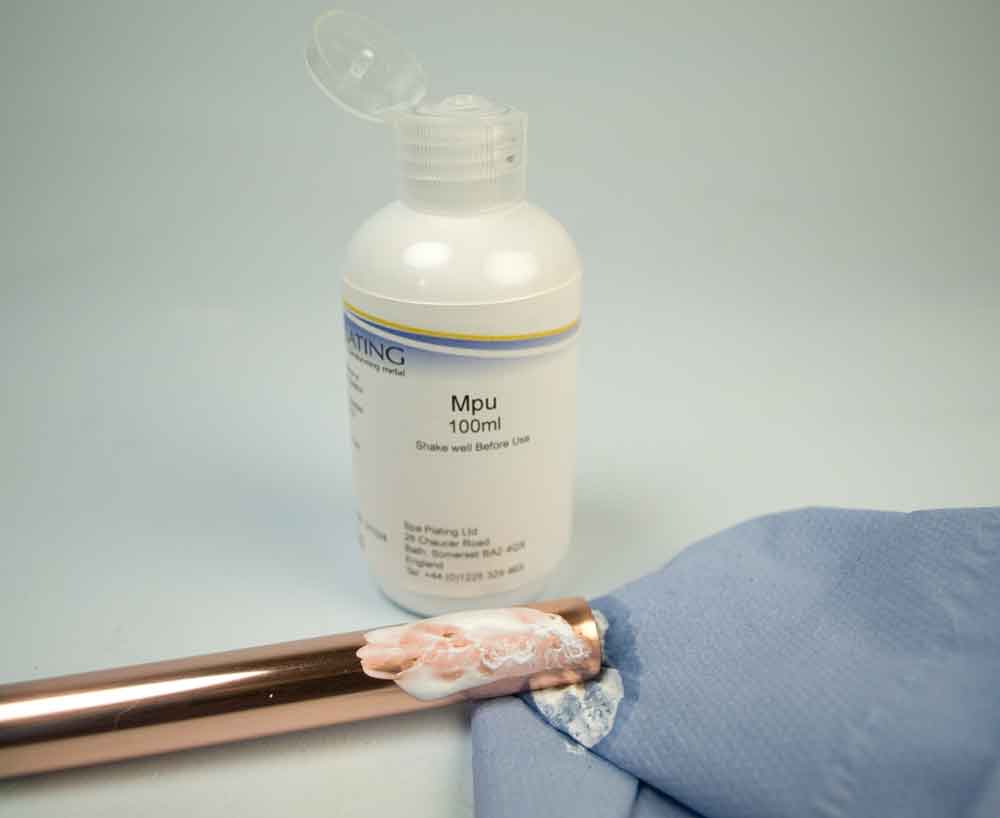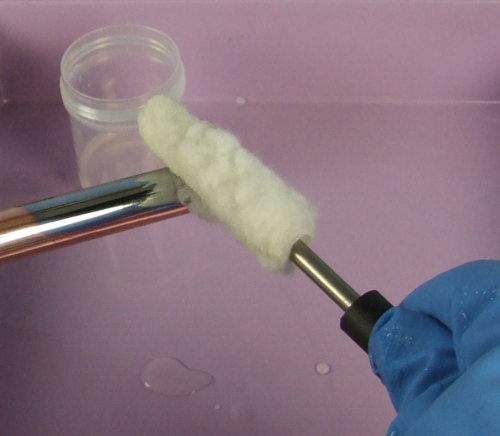Antique Gold Brush Plating Solution plates a richer, less yellow and slightly darker shade of gold.
Concentration of gold: 8 grams per litre
Click on Tech Specs for operating instructions.
HS Code: 3824 99 70
£34.77 – £194.15 + VAT
Antique Gold Brush Plating Solution plates a richer, less yellow and slightly darker shade of gold.
Concentration of gold: 8 grams per litre
Click on Tech Specs for operating instructions.
HS Code: 3824 99 70
The following video shows how to use our gold brush plating kit and would be suitable for use with this solution.
Back to Product DescriptionThere are three stages to successful Brush plating;
1. Surface Preparation
2. Plating
3. Finishing
The more attention you pay to preparing your surface at the start, the better your end result will be. This first stage can be broken down into three possible further stages; polishing, cleaning and activation. It’s unlikely you’ll have to do all three, it just depends on the type and condition of the surface you’re plating.
Polishing
Plating can’t hide deep scratches, so for a scratch free finish, make sure you polish these out before you start. If the scratches aren’t very deep then you can do this by hand, using our Hand Polishing Kit. If the scratches are quite deep then you’ll probably need to use a polishing machine. You can buy the polishing compounds for this on our online shop – just follow this link HERE.If you are lucky, your work won’t need polishing at all, and you can go straight ahead with the next mini stage which is…
Cleaning
We recommend cleaning your surface with our MPU. This cleans, polishes and activates all in one, so in many situations, this may be the only preparation stage you need to do! The aim, when cleaning, is to create a water-break-free surface. This process is demonstrated in the accompanying video.
Activating
If you’re using our MPU, a separate powered activation stage may not be needed. However some surfaces, such as stainless steel, nickel and nickel containing alloys such as nickel silver can build an oxide layer that is most efficiently removed with a powered activation/cleaning stage using our ActiClean. If you are cleaning larger areas of other kinds of metal then using our Cleaner might be the best option.

This is the stage where you start using electricity from your rectifier to plate or strip your work or if you are only intending to plate small areas, such as a watch cases or belt buckles, you could use our battery powered plating pen with one of our short electrodes fitted. You can plate a wide range of metal finishes, both precious and base metals with the brush plating method. The metal finishes that are available for purchase through Spa Plating include gold, silver, palladium, platinum and rhodium and for the base metals copper, tin and nickel. We are constantly adding more plating solutions to this list as we invest further in research and development.
This stage may need to include stripping before plating if the item you wish to plate has been chrome plated, (for example a bath tap). This is because chrome cannot be plated on to and you’ll need to strip this off using our Safe-T-Strip before you go ahead and plate.
If you’re plating a number of different finishes, for example copper, nickel and gold, you’ll need to rinse the surface of your item thoroughly between layers to avoid cross contamination of plating solutions.
To work out how much plating solution you’ll need you will have to estimate the surface area of your work. The video on the right gives a demonstration of how this can be done.

Silver brush plating on copper
This stage is quite simple and straightforward as it usually involves sealing the surface of your work with our Meataseal.
Operating Conditions and Deposit Data
| Voltage range – Platinum Electrode | 4.0 – 4.5 volts (see notes) |
| Voltage range – Carbon Electrode | 3.5 – 4.0 volts (see notes) |
| Temperature | 14 – 25 °C |
| Gold Concentration | 8 g/l |
| Electrode | Platinum or Carbon (see notes) |
| Gold content in plate | 99.9% (balance carbon) |
| Plating Rate at (4 volts, Platinum electrode) | Approx. 0.5 micron per minute (spot) |
| Hardness | 220 – 230 Hv |
| Density of deposit | 19.3 g/cm3 |
| Stress | Medium – high stress |
| Special storage requirements | Away from sunlight |
| Shelf life | 1 – 2 years |
| Health and Safety classification | Harmful |
| Special considerations | Contains potassium cyanide (0.3%) |
| Transport (UN number) | None: Not classified as dangerous for transport |
Notes:
Certain small items, for example Swabs, Nibs and Plating Pens can be sent by normal post within the UK
For all price quotations for deliveries, please add your items to our shopping cart. You will be able to see the shipping costs by clicking on the ‘Calculate shipping’ button in the cart and before checking out.
Please click on the link below to download the SDS for this product:
https://goldn.b-cdn.net/msds/antique_gold_brush_plating_solution.pdf